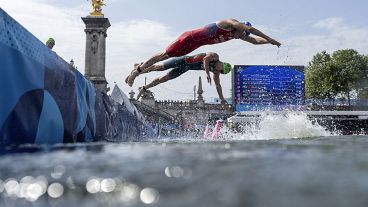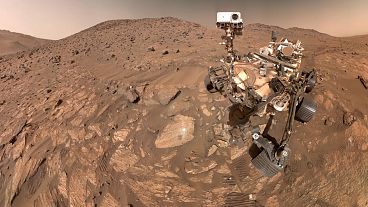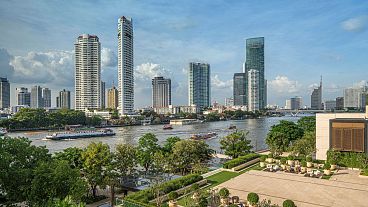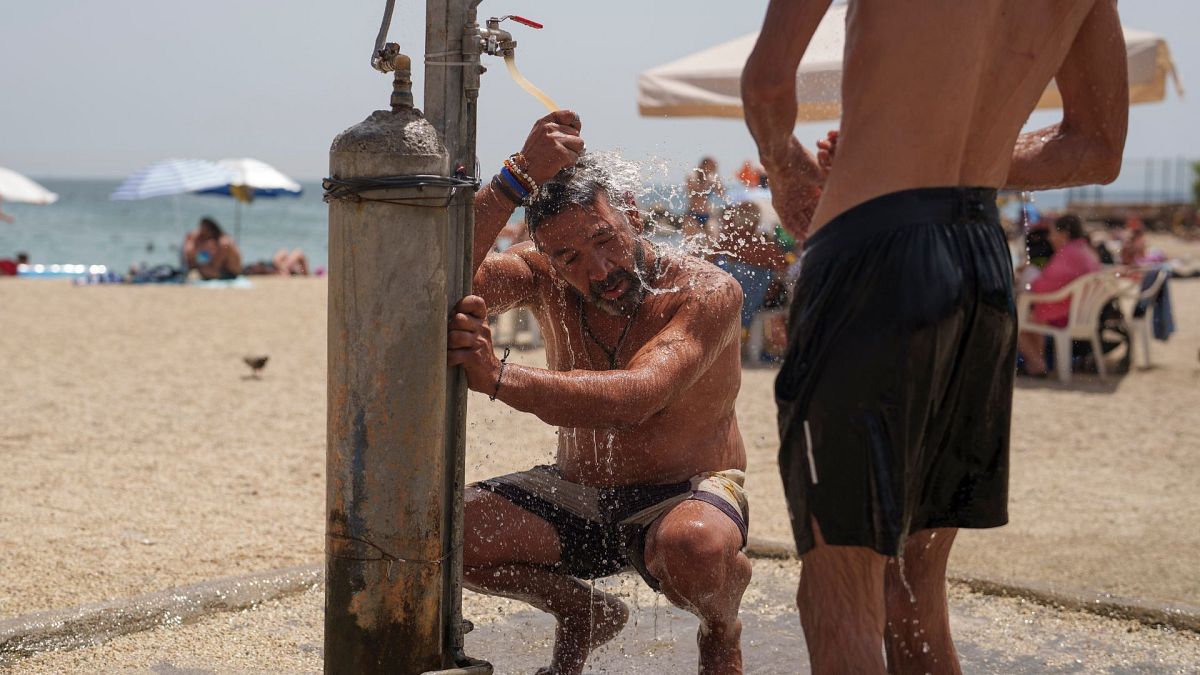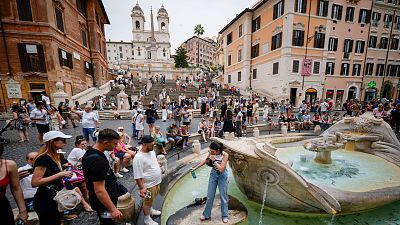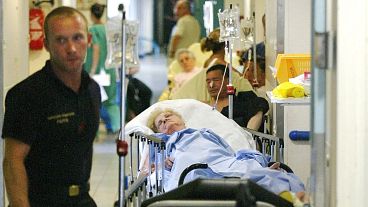Water shortages have forced some Greek islands to ban swimming pools and turn to desalination.
Just weeks after Greece was hit with its earliest ever heatwave in June, parts of the country are facing a new crisis: severe water shortages.
A state of emergency has been declared in Sifnos in the Cyclades, Leros in the Dodecanese Islands, Sami in Kefalonia and in parts of Crete.
Islanders are demanding urgent intervention as water supplies dry up.
Water levels are also low in the peninsula of Attica, which encompasses Athens.
On the island of Naxos in the South Aegean, the largest reservoir has dried up due to low rainfall and hot weather, news agency Reuters reports.
What’s behind the water shortages in Greece?
Little to no rainfall in recent months combined with scorching temperatures of up to 40C have brought on the issue, which has been exacerbated by poor infrastructure and lack of maintenance of desalination units on the islands.
Wildfires have further contributed to the problem in some regions, with a June blaze on Serifos destroying some of the island’s water supply network. The island is now facing its lowest water reserves in 20 years.
With water supply and irrigation needs at their peak, farmers have been hit especially hard as dams fail to meet their needs. Some are being forced to rely on wells contaminated by seawater due to low water levels, according to Reuters.
As the busy tourist season continues, visitor infrastructure is also straining resources.
Increased construction and the uncontrolled use of swimming pools has contributed to water shortages on the islands, Elissavet Feloni, a hydrologist and lecturer at the University of Western Attica, told Greek news channel Naftemporiki.
Last month was the warmest June on record globally and the 13th straight month of record-breaking temperatures, according to the European climate service Copernicus. It also marked the 12th month in a row that the world was 1.5C warmer than pre-industrial times - extremes linked to human-caused emissions.
How is Greece combatting water shortages?
With the dry conditions expected to persist in the coming months, Feloni called for controls on water consumption and tighter government monitoring.
Some islands have already taken matters into their own hands, with Karpathos and Serifos placing restrictions on topping up swimming pools. In Viannos in Crete, strict limits have been placed on water usage for irrigation.
The tiny Dodecanese island of Lipsi was one step ahead, banning the construction of swimming pools in the hot summer of 2023 to encourage a more sustainable approach to tourism.
The northern island of Thassos, meanwhile, is investing in a desalination plant to make seawater drinkable, Reuters reports.
In places where a state of emergency has been declared, processes for transferring water, improving supplies and accessing government funding have been expedited.
Three new wells are planned in Crete, while the navy has shipped in water to Leros, according to local news reports.

